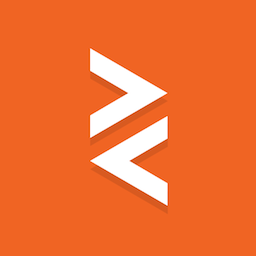
Security News
UK Officials Consider Banning Ransomware Payments from Public Entities
The UK is proposing a bold ban on ransomware payments by public entities to disrupt cybercrime, protect critical services, and lead global cybersecurity efforts.
playcanvas
Advanced tools

Docs | Examples | Forum | Blog
PlayCanvas is an open-source game engine. It uses HTML5 and WebGL to run games and other interactive 3D content in any mobile or desktop browser.
Many games and apps have been published using the PlayCanvas engine. Here is a small selection:
You can see more games on the PlayCanvas website.
PlayCanvas is used by leading companies in video games, advertising and visualization such as:
Animech, Arm, BMW, Disney, Facebook, Famobi, Funday Factory, IGT, King, Miniclip, Leapfrog, Mojiworks, Mozilla, Nickelodeon, Nordeus, NOWWA, PikPok, PlaySide Studios, Polaris, Product Madness, Samsung, Snap, Spry Fox, Zeptolab, Zynga
PlayCanvas is a fully featured game engine.
Here's a super-simple Hello World example - a spinning cube!
<!DOCTYPE html>
<html>
<head>
<meta charset="utf-8">
<title>PlayCanvas Hello Cube</title>
<meta name='viewport' content='width=device-width, initial-scale=1, maximum-scale=1, minimum-scale=1, user-scalable=no' />
<style>
body {
margin: 0;
overflow: hidden;
}
</style>
<script src='https://code.playcanvas.com/playcanvas-stable.min.js'></script>
</head>
<body>
<canvas id='application'></canvas>
<script>
// create a PlayCanvas application
const canvas = document.getElementById('application');
const app = new pc.Application(canvas);
// fill the available space at full resolution
app.setCanvasFillMode(pc.FILLMODE_FILL_WINDOW);
app.setCanvasResolution(pc.RESOLUTION_AUTO);
// ensure canvas is resized when window changes size
window.addEventListener('resize', () => app.resizeCanvas());
// create box entity
const box = new pc.Entity('cube');
box.addComponent('model', {
type: 'box'
});
app.root.addChild(box);
// create camera entity
const camera = new pc.Entity('camera');
camera.addComponent('camera', {
clearColor: new pc.Color(0.1, 0.1, 0.1)
});
app.root.addChild(camera);
camera.setPosition(0, 0, 3);
// create directional light entity
const light = new pc.Entity('light');
light.addComponent('light');
app.root.addChild(light);
light.setEulerAngles(45, 0, 0);
// rotate the box according to the delta time since the last frame
app.on('update', dt => box.rotate(10 * dt, 20 * dt, 30 * dt));
app.start();
</script>
</body>
</html>
Want to play with the code yourself? Edit it on CodePen.
Ensure you have Node.js installed. Then, install all of the required Node.js dependencies:
npm install
Now you can run various build options:
| Command | Description | Outputs |
|---|---|---|
npm run build | Build release, min, debug and profiler engines | build\playcanvas[.min/.dbg/.prf].[mjs/js] |
npm run build:es5 | Build release, min, debug and profiler engines for es5 only | build\playcanvas[.min/.dbg/.prf].js |
npm run build:release | Build release engine for es5 and es6 | build\playcanvas.[mjs/js] |
npm run build:types | Build engine Typescript bindings | build\playcanvas.d.ts |
npm run docs | Build engine API reference docs | docs |
Pre-built versions of the engine are also available.
Latest development release (head revision of dev branch):
Latest stable release:
Specific engine versions:
To build the source map to allow for easier engine debugging, you can add -- -m to any engine build command. For example:
npm run build -- -m
This will output to build/playcanvas.js.map
The PlayCanvas Engine is an open source engine which you can use to create HTML5 apps/games. In addition to the engine, we also make the PlayCanvas Editor:
For Editor related bugs and issues, please refer to the Editor's repo.
FAQs
PlayCanvas WebGL game engine
The npm package playcanvas receives a total of 2,995 weekly downloads. As such, playcanvas popularity was classified as popular.
We found that playcanvas demonstrated a healthy version release cadence and project activity because the last version was released less than a year ago. It has 0 open source maintainers collaborating on the project.
Did you know?

Socket for GitHub automatically highlights issues in each pull request and monitors the health of all your open source dependencies. Discover the contents of your packages and block harmful activity before you install or update your dependencies.

Security News
The UK is proposing a bold ban on ransomware payments by public entities to disrupt cybercrime, protect critical services, and lead global cybersecurity efforts.

Security News
Snyk's use of malicious npm packages for research raises ethical concerns, highlighting risks in public deployment, data exfiltration, and unauthorized testing.

Research
Security News
Socket researchers found several malicious npm packages typosquatting Chalk and Chokidar, targeting Node.js developers with kill switches and data theft.